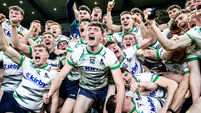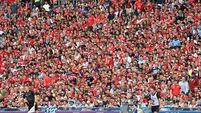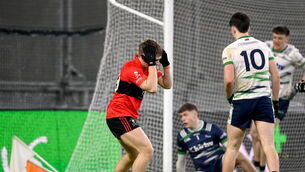‘Without a vision people die’
That’s no surprise to anyone who knows the Clareman. In many ways his decades as a priest and activist have been a search for value, and when we sat down in his front room for a chat he didn’t dawdle looking for the value in the Banner’s All-Ireland win.
“We’re at a crossroads in Ireland and we need to define where we want to go. The kinds of things that brought us into the era of the Celtic tiger will not work into the future, though we’ve already begun to talk about house prices. Will we ever learn?













